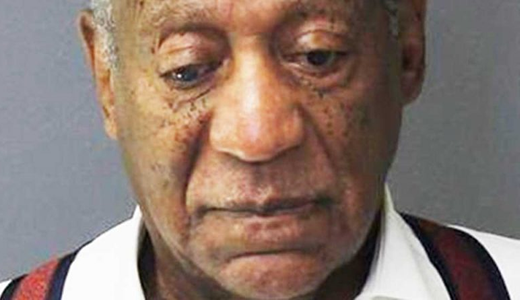Bill Cosby, one-time comedian, actor, Jell-O salesman and “America’s Dad,” is spending another night in prison—his home for the next three to 10 years, according to the sentence passed down by Judge Steven T. O’Neill.
“It is time for justice, Mr. Cosby,” O’Neill said. “This has all circled back to you. The time has come.”
Cosby’s accusers might say it’s well past time. Cosby’s day in court shows just how the times themselves have changed, thanks in large part to social media.
The assault that eventually landed Cosby in prison took place more than 14 years ago. Andrea Constand, an employee of Temple University at the time, said that Cosby drugged her in his home in January, 2004. The following year, after Constand moved to Toronto, she talked to her mother about the assault and then contacted the Canadian police. It was, apparently, the first time Cosby’s allegedly abusive behavior toward many women landed him on a police blotter. But it was hardly the first time someone had talked about it.
In the early 1980s, Joan Tarshis told a freelance reporter about an assault that allegedly took place in 1969. The reporter never wrote about it. In 1996, former Playboy Playmate Victoria Valentino said during a videotaped interview that Cosby allegedly assaulted her, too. Again, the interview never saw the light of day.
By 1990, Cosby’s rumored behavior was well-known enough that New York radio talk show host Wendy Williams saw a piece about it in the Enquirer and talked about it on air. Cosby allegedly called up the station during the segment and demanded that Williams be fired. “Cosby dressed me down and called me everything but a daughter of God,” she told Vice.
But one does not pull down America’s Dad based on rumor. And no one whom Cosby allegedly assaulted back then was willing to take the next step: Bringing the matter to law enforcement. “Who was going to believe me?” Tarshis told The Washington Post in 2014. “If he was a regular Joe, I might have done something.”
Only when Constand came forward did other alleged victims begin to cautiously step into the light as well.
But still, nothing really changed.
Constand’s charges against Cosby were dropped in February 2005 due to “insufficient credible and admissible evidence,” according to the D.A. prosecuting the case. The next month, Constand sued Cosby, with a dozen women eventually offering their own testimony in support of the suit. The suit was later settled, and Cosby contined to go about the business of being one of America’s most beloved entertainers.
Lots of folks had the chance to explore the allegations against Cosby, but they didn’t.
I’d like to think that they simply dismissed the accusations as so much gossip: They had faith that Cosby—so long an apparent paragon of genial chuckles and gentle wisdom—could never have done what he’d been accused of.
I’d not like to imagine that journalists and law-enforcement were actively protecting a man they suspected of being a monster.
But in the end, motives didn’t matter: In a world filled with old media and traditional informational gate-keepers, the allegations against Cosby stayed relatively quiet. Social media, after all, was just a youth-oriented sideshow in 2005, used by just 7% of us; Facebook had just been invented the year before. As a result, most of the wider world either didn’t know about the allegations against Cosby or simply pushed them aside.
What changed? The power of social media itself—along with, ironically, a stand-up comedy routine.
In October 2014, comic Hannibal Buress called out Cosby during his show as a rapist—referencing the (at the time) the 13 women who’d made allegations against Cosby. (The number of accusers has since ballooned to more than 50.) The moment was recorded and splashed across social media platforms. And it was as if the world suddenly pursed its collective lips together and said, “Hmmm. Maybe we should take this stuff a little more seriously.”
In the years since, social media has forced us to take accusations of all sorts of (predominantly) women a little more seriously. Righteous outrage has powered the #MeToo movement, with Facebook, Twitter and Instagram forcing us all to look. No longer can inconvenient accusations be simply swept away, no matter how beloved a public they involve. Social media has given regular ol’ folks, with no money or fame or influence to speak of, a powerful platform from which to demand justice.
That’s a good thing.
Listen, I thought Cosby was one of the funniest folks alive. I hoped and hoped that the allegations weren’t true. But let’s face it: Rapists should face justice, no matter how funny they are. And I’m glad that social media served a role—a big one—in bringing Cosby before a court.
But one word of caution: As we rightly applaud the role that social media in its role of righteous advocate and, sometimes, prosecuting attorney, we should always be mindful that social media is inclined to outrage. And when it comes to bringing down a sentence, we shouldn’t give it the role of judge, too.






Recent Comments